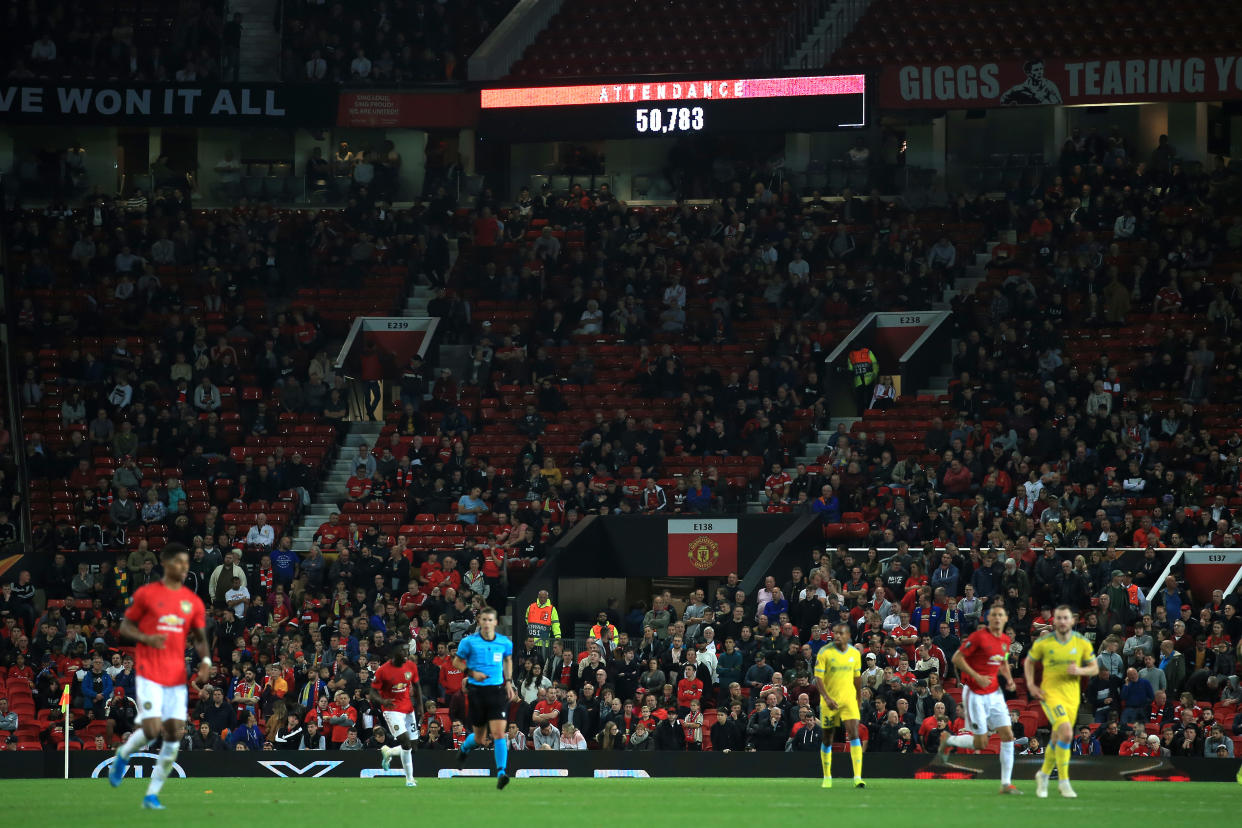Why should we care about the Europa League when UEFA and the big clubs clearly don't?

The Europa League kicked off on Thursday.
Did you even know the Europa League kicked off on Thursday?
Maybe you did. Maybe you didn’t. It probably depends on whether your favored team is in it. Or if you’ve simply been hardwired to expect European soccer on Thursdays as well.
Certainly, UEFA, the European governing body and the ostensible steward of this 48-year-old tournament, didn’t help you find it. After all, it agreed to an English-language rights deal for the United States with Turner Sports that would put the Champions League on TNT, front and center, where it belongs, but buries the second-tier Europa League on the subscription-based B/R Live app. Under UEFA’s previous deal with FOX Sports, which expired after the season before last, an extensive slate of Europa League games was available on cable TV in English. Now, only the final is.
While Turner’s eagerness to add value to its subscription app, while ridding its network of the burden of carrying games that aren’t as well watched as the Champions League is on Tuesdays and Wednesdays, UEFA’s decision is baffling. It knowingly and willingly surrendered TV exposure for one of its top events in one of the world’s richest markets.
[ Follow Yahoo Soccer on Twitter and Facebook ]
Want to watch the Europa League on TV, as most people still do? You’ll have to watch it in Spanish, on Univision or Galavision. That’s where you could find heavily supported Arsenal and Manchester United, taking on Eintracht Frankfurt and Astana, respectively.
But if UEFA doesn’t seem to take the Champions League’s ugly stepsister terribly seriously, its biggest teams don’t either. Arsenal put out a heavily diluted starting lineup with three recent academy graduates but nevertheless prevailed 3-0 in a chaotic game that provided no venue for serious defending.
Manchester United demonstrated even less concern for the outcome, starting just the one regular in Marcus Rashford. The Red Devils did their absolute best not to convert any of their dozens of chances, until Mason Greenwood finally did score a goal in history’s most lopsided 1-0 win, in front of a half-empty Old Trafford.
Yet when the matchday was over, both United and Arsenal had been upstaged by Fenerbahce goalkeeper Loris Karius’s hopeless howler, gifting Slovan Bratislava a goal.
Had to be Loris Karius 🙈 pic.twitter.com/NGx1XRlhN2
— B/R Football (@brfootball) September 19, 2019
It felt like a fitting summary of the return of a tournament that doesn’t quite know what it is.
Back in 1971, when the UEFA Cup – as it was recalled until a rebranding in 2009 – first kicked off, 32 teams got to partake in the Champions League, just as now. But the qualifying round had just two teams in it, playing for the final berth. From there, it was a straight knockout tournament, contested only by the champions of those 32 nations. It was an exclusive tournament, which didn’t deliver all that much soccer.
So a secondary tournament made sense, offering European competition to another 64 teams. It displaced the Cup Winners’ Cup – which pitted domestic cup winners and was killed off in 1999 – as the second-tier event.
Today, 79 teams take part in the Champions League if you include the extensive qualifying stages, while the Europa League has ballooned to fully 203 teams from preliminaries through the final. There’s a good bit of overlap there, as various Champions League stages dump the losers into the Europa League, or its qualifiers. But the amount of European soccer is abundant nonetheless. What’s more, UEFA plans on bringing back a third-tier tournament by 2021, given the unfortunate working title of Europa League 2, as if to underscore that it’s merely the residue of a tournament that’s already unloved.
UEFA’s answer to forgettable soccer that even the governing body itself isn’t terribly interested in is simply to create more of it. Because the only thing soccer executives seem to know to do is to create yet more soccer. It’s their solution to everything. Because games mean money, and money solves problems. Never mind that the product becomes ever more diluted.
It’s troubling when the major teams in a tournament don’t treat it seriously unless their reserves have unexpectedly dragged themselves into the later rounds of it. It’s more worrying still when even then they see it as an alternative route into the Champions League, the prize affixed to the tournament a few years ago to get the biggest clubs to care a little more. In other words, the prize for winning the Europa League is not having to play in the Europa League anymore the next season.
So who is it for, then? The clubs from the smaller leagues, who have no realistic path to the Champions League. So why not simply give them this tournament as their own? Why not make the Europa League a competition for the best teams in the leagues that aren’t represented in the main tournament of the Champions League? Or perhaps those who have just one team in it, since a mere seven nations out of UEFA’s 55 member associations have more than one team active in it?
Rather than lumbering it with teams who don’t want to be in it, the Europa League would be meaningful to everybody participating. And perhaps that would make it a more valuable entertainment property as well, a true competition for a coveted prize. Because it can only get more appealing from here.
Leander Schaerlaeckens is a Yahoo Sports soccer columnist and a sports communication lecturer at Marist College. Follow him on Twitter @LeanderAlphabet.
More from Yahoo Sports:

 Yahoo Lifestyle
Yahoo Lifestyle 

